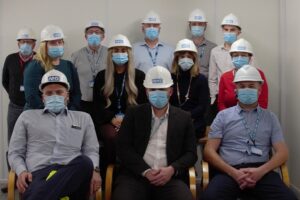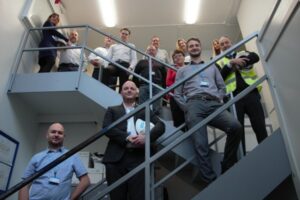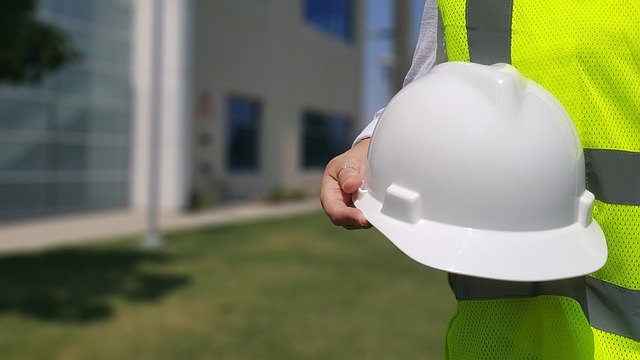They are the heroes in hard hats, playing a vital role in improving health care for patients across East Yorkshire.
The Capital Development team at Hull University Teaching Hospitals NHS Trust is driving construction projects worth around £60m to reshape health services at Hull Royal Infirmary and Castle Hill Hospital.

Photos by Jasmine Lee
And the efforts of the team are even more outstanding as 51 projects have been – or are being – completed against the backdrop of the pandemic.
Duncan Taylor, Director of Estates, Facilities and Development, said: “What our Capital Development team is achieving month in, month out is nothing short of remarkable at any time, let alone throughout a pandemic with all the challenges that brings for the construction industry.
“Their efforts will undoubtedly improve patient care, allowing us to provide some of the most modern facilities in the country.
“These facilities make our entire organisation more responsive to the needs of patients as well as providing a great working environment for our dedicated staff, enabling us to continue to attract the best local, national and international talent to work here.”
Major projects completed since March 2020 include
- a new £2.8m development at Hull Royal Infirmary featuring three new Covid/respiratory wards
- £1.6m specialist theatre facilities for the Da Vinci Robot
- £1.13m oxygen resilience work for the new Ward 38 at HRI and wards at Castle Hill
- Changing Places facilities costing £96,000
- A new £160,000 main entrance 2 at Castle Hill Hospital
- £214,000 upgrade of staff facilities for the Estates Department
- Combined Heat and Power Unit at Hull Royal Infirmary and Sterile Services Unit costing £2.5m
- A £1.8m refurbishment of the main steam boiler house at Hull Royal Infirmary
The team has also cleared old buildings from both hospitals, resurfaced roads, upgraded lifts and car parks and improved security and delivered more than £3m of maintenance such as replacement of emergency lighting, water main replacement and plant replacement at both hospitals.
 Since March this year, major projects have been completed including the £3m reconfiguration of the ground floor of Hull Royal Infirmary featuring the relocation of the Pharmacy Department, the patient discharge lounge and the reconfiguration of the Acute Medical Unit.
Since March this year, major projects have been completed including the £3m reconfiguration of the ground floor of Hull Royal Infirmary featuring the relocation of the Pharmacy Department, the patient discharge lounge and the reconfiguration of the Acute Medical Unit.
They’ve completed a £2.8m project to relocate Virology from Castle Hill to join the main Pathology department at HRI and created the new Complex Rehabilitation Ward at Castle Hill and the £1m Queen’s Centre Acute Assessment Unit opened last month.
Projects due for completion shortly include the new ICU, the Allam Diabetes Centre and a new Elderly Assessment Unit, all at Hull Royal Infirmary and a new combined heat and power unit at Castle Hill Hospital.
Sustainability projects have also been undertaken by the team as part of HUTH’s Zero Thirty campaign to achieve carbon zero by 2030. These include more than £12.6m of de-carbonisation schemes in 10 months including replacement of 20,000 light fittings, heat pumps, roof insulation, window replacement, a large solar panel field.
The fantastic efforts of our Capital Team in using sustainable technologies in new buildings and the refurbishment of our existing buildings have also projected the team into the national spotlight.
They were announced the winners of the ‘Sustainable Achievement Award’ from the Institute of Healthcare Engineering and Estates Management (IHEEM) last week for its work using sustainable technologies for existing buildings and new builds.
The Healthcare Estates IHEEM Awards recognise excellence in the latest innovations from leaders in the healthcare sector. The awards are judged by experts with extensive experience and achievements within the NHS and commercial healthcare sector.
The awards were held in Manchester as part of IHEEM’s Healthcare Estates Conference.
Alex Best, Head of Capital which covers Capital Development, Sustainability, PFI and Property in Estates, Facilities and Development, said: “I am incredibly proud of my team and the efforts they make every day to support our teams in their efforts to deliver the best possible care for patients in the best possible surroundings.”

